This blog post was written by Dr Alison Buckler (Senior Research Fellow in International Education at The Open University) with contributions from Dr Liz Chamberlain, Dr Kris Stutchbury, and Claire Hedges (senior academics and programme managers) as well as other colleagues at the Open University and partner organisations. The blog was also published on the Open University website, and featured in the OU International Development newsletter.
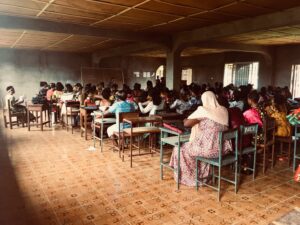 For over twenty years, the Open University (OU) has conceptualised and coordinated pioneering large-scale distance learning initiatives in low-resource contexts. Working with governments, academic institutions and NGO partners, OU programmes have reached over two million young people, teachers and teacher educators.
For over twenty years, the Open University (OU) has conceptualised and coordinated pioneering large-scale distance learning initiatives in low-resource contexts. Working with governments, academic institutions and NGO partners, OU programmes have reached over two million young people, teachers and teacher educators.
The Coronavirus (COVID-19) pandemic has forced learning programmes around the world to shift to a distance mode of delivery. Commentaries on this shift variously position it as an unfortunate necessity, a second-best option or, occasionally, an opportunity for innovation and growth.
But this is what we have always done at the OU. It is our first-choice mode of delivery. Despite this, distance education is not a one-size-fits-all solution, especially in low-resource contexts: even we are challenged by the current situation.
In this post we share how we are framing our response to these challenges around five interlinked priorities: Retention, Relationships, Refocussing, Reflection and Resilience. We present some ideas and ways of working that might be helpful for other education initiatives moving to – or adapting – a distance mode of delivery.
Retention
In most of the contexts we work in, schools, colleges and learning hubs are closed. Even though our students are not in their usual place of learning, we believe it is vital to keep them enrolled and engaged.
Many programmes are working with marginalised learners. We know that these are most likely to drop out of school permanently because of school closures, and we know that the longer schools are closed, the more drop-outs occur. More generally, the longer people pause a learning programme, the less likely they are to see themselves as learners. It becomes much harder (logistically and psychologically) to re-enrol and re-engage.
Preventing drop-out requires shifts in how programmes are facilitated. The IGATE-T Programme, supported by UK Aid through the Girls’ Education Challenge (GEC), provides school-based professional development for teachers in Zimbabwe. IGATE-T usually uses hard-copy resources to support classroom activities and staffroom dialogue, so over the past few weeks we have been working out how to get learning materials to those isolating at home. Whatsapp has been identified as teachers’ preferred mode of delivery, but we appreciate that buying additional data bundles might not be feasible for them right now. Instead, the programme is trialling how data can be purchased at a much lower cost. This has involved seeking deals with data providers and shifting budget lines to ensure teachers are not out of pocket.
In the GATE-GEC programme which supports women in rural Sierra Leonean communities to become qualified teachers, mentors are working with the women (over the phone) to develop tailored study plans for the upcoming national qualification exams. GATE-GEC is also distributing radios for programme delivery.
While it is important to recognise that learning may be low down in people’s priorities at the moment, it is equally important to remember that this period of uncertainty will end. Motivations for joining a programme will likely still be important – maybe even more so. We are doing all we can to keep in touch with learners and remind them that they continue to be valued members of their learning community.
Relationships
It is impossible to maximise retention without prioritising relationships at all levels of learning systems.
SAGE, another Girls’ Education Challenge programme supported by UK Aid, runs community learning hubs for out-of-school girls in Zimbabwe. SAGE is trialling different ways to reach out to girls while the hubs are closed. Unlike those enrolled on teacher development programmes, most girls studying with SAGE don’t have their own phones, so community buy-in is essential to facilitate girls’ access to short but regular ‘learning conversations’ with their community educator.
The ZEST teacher development programme in Zambia, which usually supports teacher learning through school-based meetings, is setting up Whatsapp groups for teachers and schools so they can communicate regularly with their colleagues and programme coordinators.
Mentors on the GATE-GEC programme in Sierra Leone have increased the number of well-being checks they carry out with their mentees. The programme is also re-connecting with student teachers who have qualified and are waiting to be included in the Government pay-roll. This includes collating messages of appreciation and support from the communities they are working in.
At the management level, SAGE has established a weekly reading group for colleagues from the OU, Plan UK and Plan Zimbabwe. The purpose is to collectively read and synthesise the wealth of reports and blogs being published about the crisis to ensure coherent and inclusive learning across the programme.
There are practical considerations in sustaining and nurturing relationships too. Many of our international colleagues rely on institutional wifi access at their place of work. We are changing how we communicate across programmes to ensure we can stay in touch without them having to buy expensive data bundles (and risk their safety venturing out to purchase these). Keeping communications concise and efficient is key, as is ensuring file-share documents are as small as possible with no or low-res images.
In addition, the logistical challenges of isolation are far more significant for our international colleagues. Flexible and asynchronous communication recognises and respects shifting balances between personal and professional priorities. Ultimately, as Dr Chisomo Kalinga has recently said it’s about being “mindful of people’s humanity” by routinely asking what’s going on on the ground and adapting working patterns accordingly.
Re-focusing
As well as keeping learners engaged and on-track – especially when they are working towards national qualifications – we recognise that programmes need to adapt in response to the changed circumstances. We are asking: what resources, conversations and experiences will support learners to stay connected and cope with how the crisis is affecting their daily lives?
In parallel with the distribution of radios to teachers in Sierra Leone, GATE-GEC is working with the National Teacher Service Commission to air a 6-week learning and revision programme. This will cover the curriculum, but also ideas for studying and preparing for exams under lockdown. SAGE’s learning conversations between girls and community educators are encouraging reflection on what constitutes a ‘learning experience’: what examples from life under lockdown can support their learning, and what elements of the programme can help them deal with staying at home and staying safe?
Re-focussing needs to think about the medium-term too. It is unlikely that things will go ‘back to normal’ right away, so how can programmes adjust gradually? In IGATE-T – which has a core focus on learning dialogues between teachers – plans are being made for how small groups of teachers might be able to get together safely when the restrictions on movement are lifted, but before schools re-open.
In the longer-term, it’s crucial to recognise the impact of COVID-19 on individuals and communities and build this into pedagogic strategy. As we transition out of the crisis, schools and teachers all over the world will be under immense pressure to ‘catch up’ – the focus will be on what teachers need to do. But we think that attention needs to be given to what people have learned during the crisis.
In Zambia, ZEST is using the break from normal programme activity to develop evidence from a recent evaluation into reflection and discussion topics for teachers to engage with in their Whatsapp groups. As well as a providing a new supported learning experience for the teachers, this unexpected opportunity for detailed, qualitative teacher feedback is helping to re-focus the learning materials.
Across all our programmes, we are setting up procedures to build on teachers’ and learners’ experiences of this time, to reflect on and capture the knowledge that has been generated and re-focus programmes to enhance their relevance for these and future cohorts.
Reflection
All of the OU’s international education programmes have – at the heart of their pedagogy – an emphasis on social and relational learning. As we adapt our programmes in this unprecedented time, more than ever we are having to live this value in our work as well as in our teaching.
As Olivia Rutazibwa points out in this blog post, it is clear that that high-income countries do not have the answers to the crisis. It is also clear that protocols we are promoting and maintaining in professional and educational contexts in the UK are not appropriate in many of the contexts in which our programmes are based.
So, despite the fast-paced nature of the pandemic and pressures to work with urgency, we are trying to remember to pause and reflect. We’re looking to the expertise of our international PhD students and building in opportunities to learn across our programmes – something we often don’t make enough time for. We are drawing on the experiences and guidance of colleagues in Sierra Leone who worked through the Ebola crisis. We are sharing programme responses at national and community levels and trying to be strategic in terms of what can be replicated or adapted in different contexts. For example, resources from the pan-African TESSA teacher education network are being modified for use in ZEST, and in the Whatsapp groups set up to support teachers in IGATE-T.
The Open University’s commitment to openness – manifested in our international work through open licencing – is helping us to quickly share resources between programmes. We’re discussing proposals for the development of an app-based platform and online seminar so these resources can be shared externally too.
Finally, IGATE-T is trialling networks of learning champions to see what works best to support learners during the crisis. These champions suggest, test out and adapt different approaches to stay connected and practise learning during lockdown. Some champions, for example, are borrowing the phones of school and community leaders, downloading learning materials, and hosting small-scale learning sessions in open spaces where people can maintain social distancing. Community responses to these approaches are being captured and shared through the network and with other programmes working in similar contexts.
Resilience
All four of the above lead towards our fifth priority which emphasises the need for programmes to build in strategies that support flexible and adaptive working in case of future crises. But also, as an institution in collaboration with our partners and national governments, we are preparing for significant changes in societies and economies around the world. We predict these changes will consolidate shifts to large-scale online learning and remote learning collaborations at all levels of education systems.
***
These five ‘Rs’ of retention, relationships, re-focussing, reflection and resilience align with the Open University’s institutional values of inclusiveness, innovation and responsiveness. We expect ongoing adaptation of our programmes and ways of working as we move through and – eventually – out of the crisis. But these are the priorities that have been driving us as we strive to keep our learners connected and inspired (and feeling anything but ‘distant’) while we navigate this extraordinary moment in time.
For more information about our programmes, partners and funders please see here.

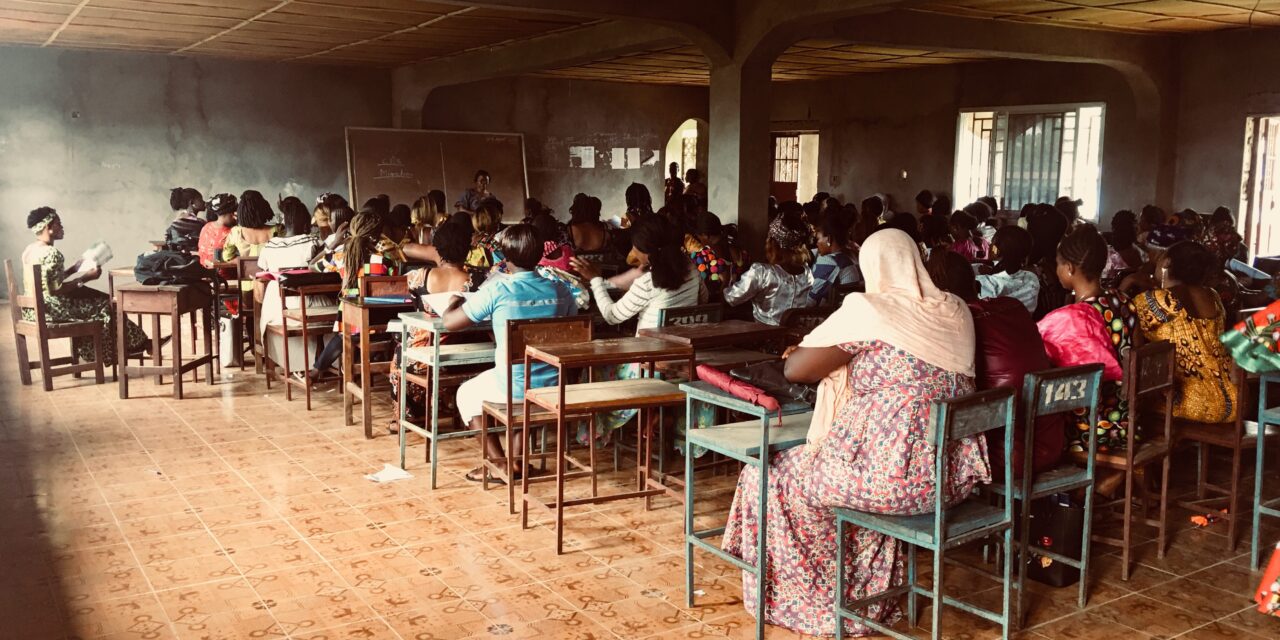
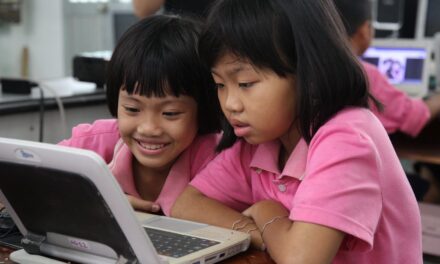
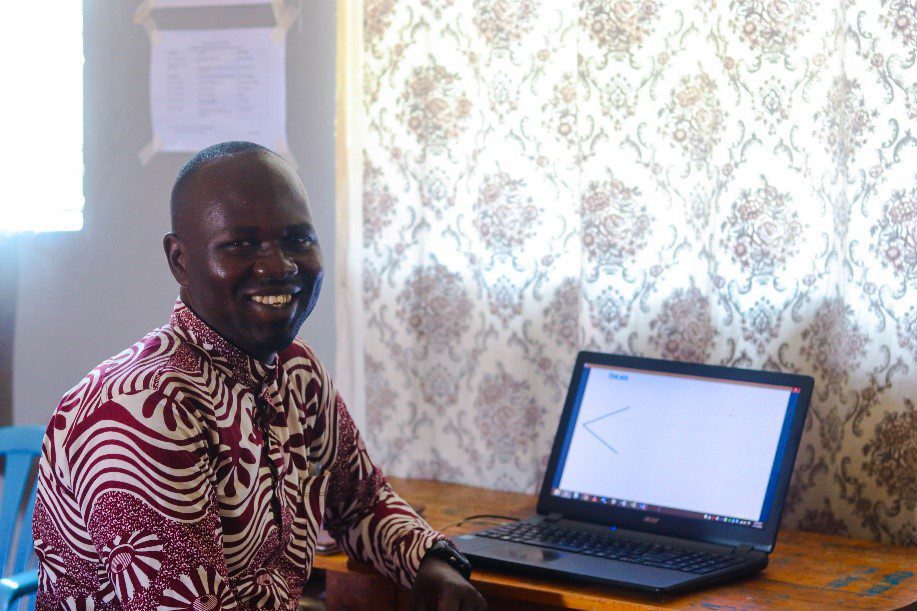
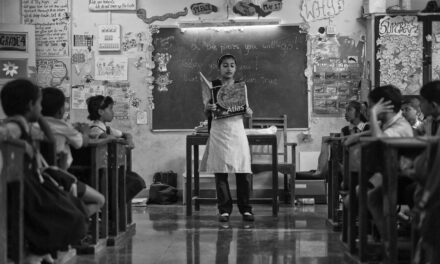

Trackbacks/Pingbacks